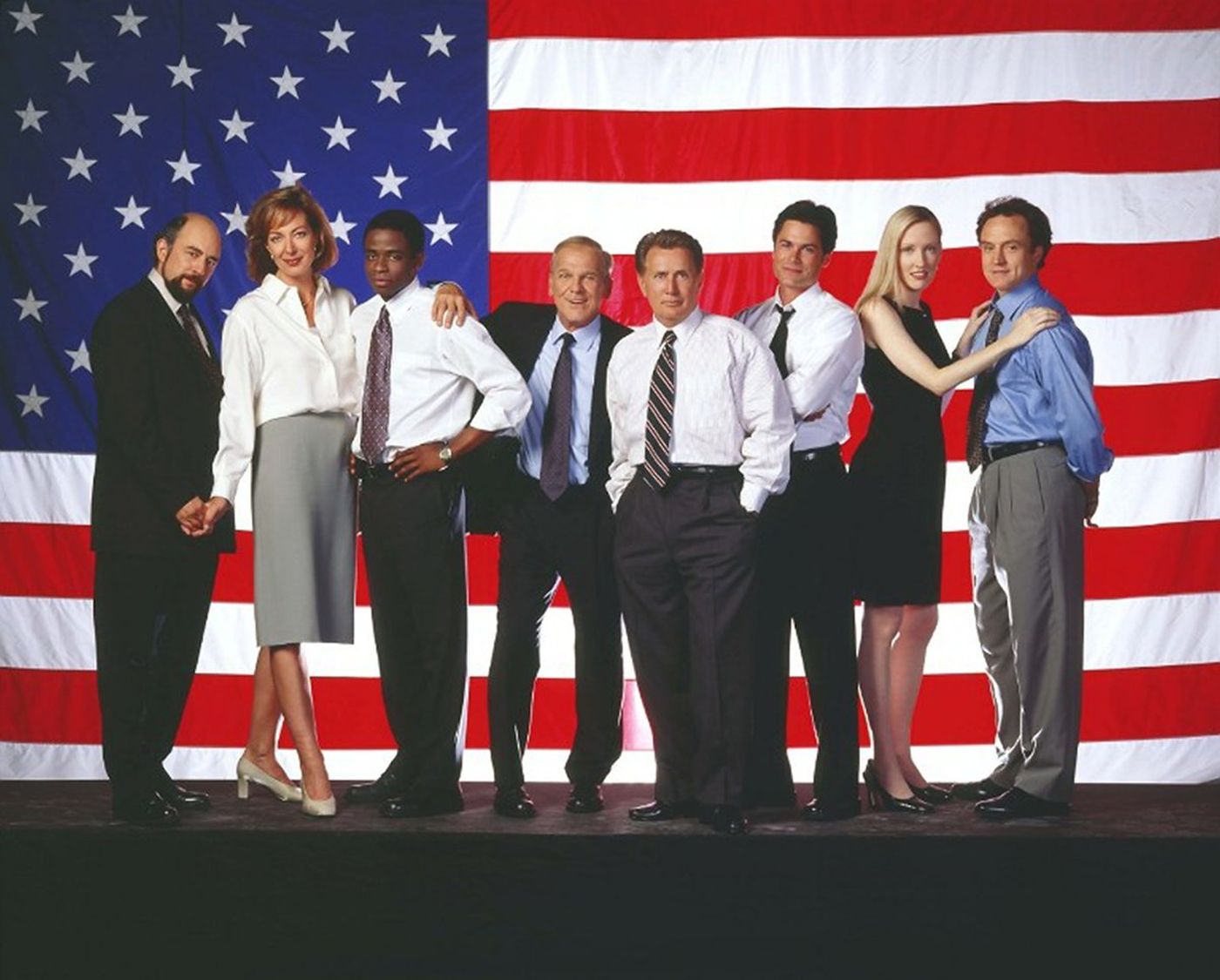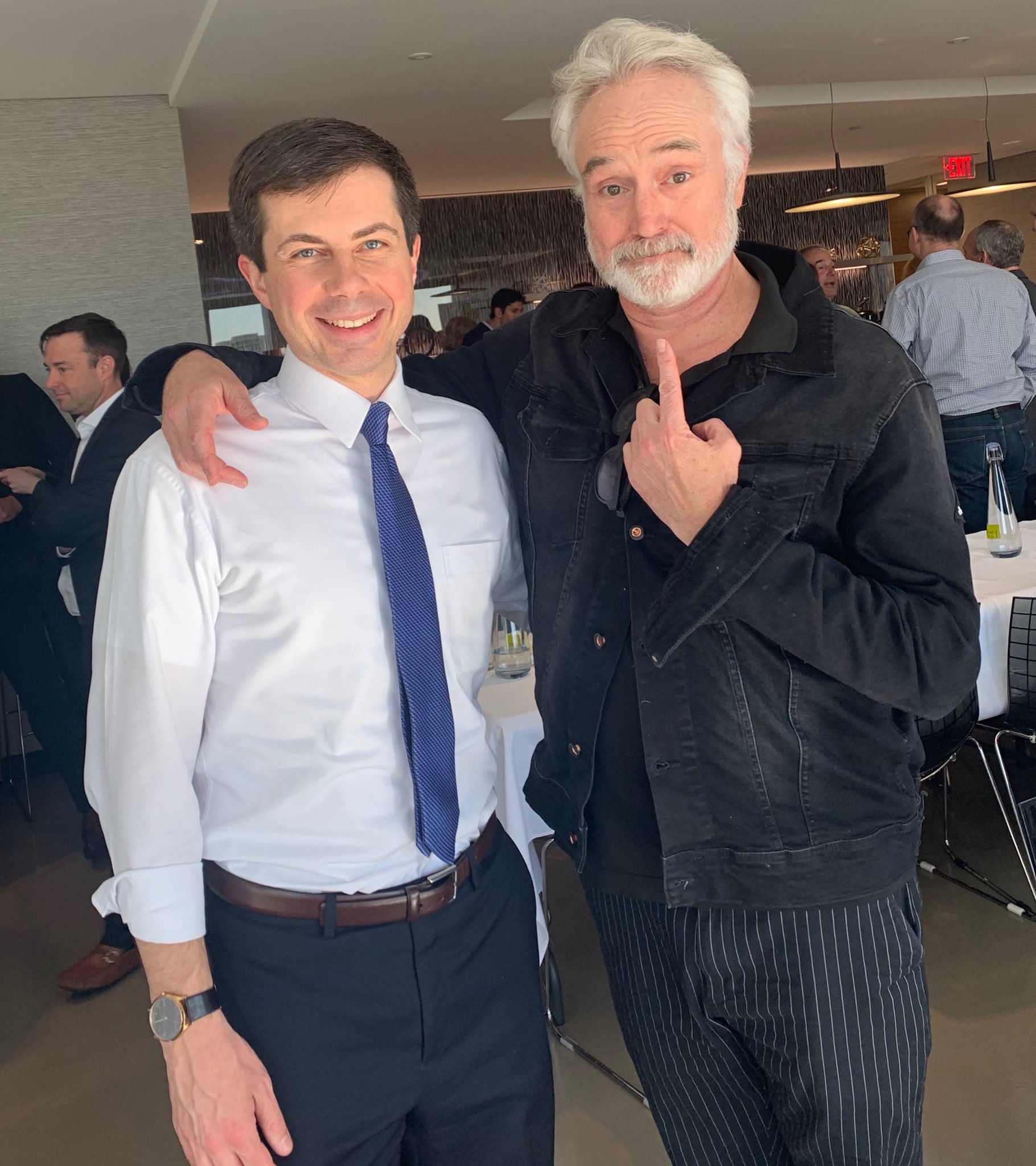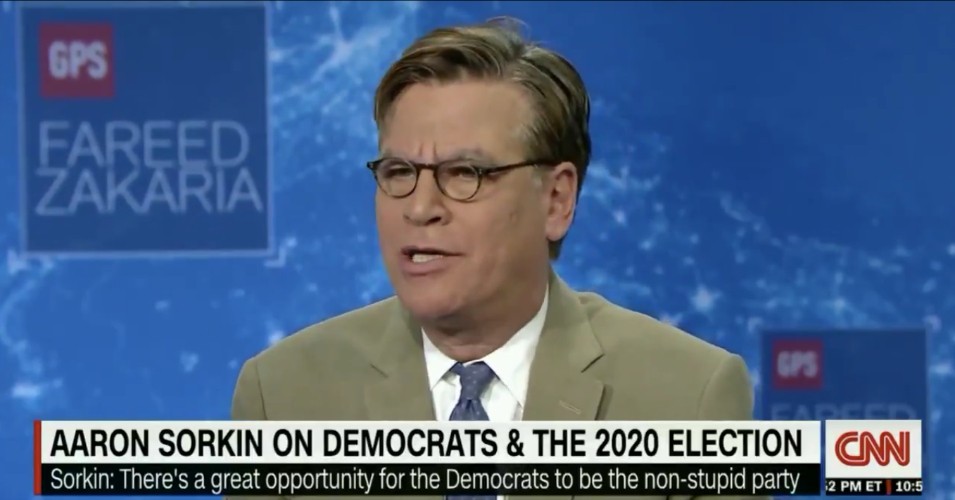Sorkin Delenda Est
It's time to give up our faith in centrist liberalism and cast down our West Wing idols.

The Italian autonomist Franco “Bifo” Berardi once made the controversial claim that the twentieth century would have been better if Lenin had never existed. Berardi’s statement wasn’t literal, but it was diagnostic. In his reading, Lenin and his depressive episodes echo through the twentieth century as the utopian energies of revolution (exemplified in the Italian futurist manifesto) collapsed into authoritarian socialism and the long century of leftist defeat. Sunk as it was into a miasma of leftist melancholy, the century that started with the fire of revolution and the hope of a better world came to a close under the thrall of what the late Mark Fisher called “capitalist realism” — that pervasive sense that there can be nothing other than capitalism, no better world or anything new to hope for.
And so, we must say now: the twenty-first century would be better if Aaron Sorkin had never existed.
Sorkin’s most famous work, The West Wing, has already been well-analyzed for its influence on politics. The show effectively presented politics as a matter of form, not content. It didn’t necessarily matter what characters said, as long as the people saying it were smart and could dominate whoever they were arguing with facts and logic, preferably while walking and talking through the halls of power.
It was a show that revealed a kind of neoliberal politics that, while vacuous, had the appearance of coherence. This, in itself, is not necessarily a problem — the problem emerges in how mainstream critics and cultural institutions adored it. It was held up as a fantasy of what politics would be like if the best and brightest of us — the ones with degrees from the right schools and the rhetorical chops to show for it — could be in charge of everything. Fittingly it was a show that started in the late 1990s, the era when the neoliberal consensus was forged in the crucible of Reaganism and Thatcherism, when the grey curtain of capitalist realism began to descend and the ideas of a socialist project became less of a possibility and more of a myth.
The show is an expression of the general historical shift in the practice of politics, particularly in America, towards a supposedly non-ideological ideology. As Wendy Brown and David Harvey have each shown in various ways throughout their work, the neoliberal project was one of privatization, collapsing systemic politics into the individualized logic of the market, which makes its way into every aspect of our lives.
Think of the famous scene in The West Wing where a homophobic talk radio host doesn’t show the correct deference to the President. Fretting over the small success of a long-vanquished political rival, the President of the United States goes to a mixer for talk radio propagandists. When one particularly religious Biblical literalist (who publicly denounces homosexuality) refuses to stand while he is in the room, the President impugns her credentials, and then reels off Biblical commands asking after each increasingly defunct edit if it, too, should be obeyed.
It’s a performative moment beloved by the show’s fans as a supposedly Biblical homophobia gets mercilessly shown up in public by superior Biblical knowledge. But, in reality, it does nothing but privatize the larger antagonisms of religion and politics in American public life, reducing them to the hypocrisy of one individual. For this kind of politics there is no worse sin than hypocrisy. This isn’t surprising as without an understanding of the political importance of historical and social conditions, all that matters is whether someone is a hypocrite or not, rather than the wider, systemic forces which produce such noxious politics. If such an encounter were to happen now, it would end up on YouTube, with a clickbait title, to further reduce the idea of politics into a single, shareable moment — politics reborn as viral content — “President eviscerates hypocritical homophobic quack.”

Bradley Whitford, who played Josh Lyman on “The West Wing,” on the campaign trail for Hillary Clinton in 2016.
Another way of thinking about this is to see neoliberal politics as a means by which the market becomes the central mechanism of politics. What that means, then, is that the ideal politician is not someone who has any kind of strong conviction or who acts from any kind of axiomatic starting point, but is someone who can perform the role of the ideal politician. As long as the candidate looks like a politician, and as long as the market delivers on the promise of eternal growth, then it should be possible to combine capitalist success with socially liberal policies. This depends, of course, on a complete denial of what underpins capitalist profit (the extraction of surplus value, the exploitation of labour in the global south etc) and upon believing that capitalism is never prone to any kind of crisis — a belief which requires both colossal historical amnesia and a willful denial of the current state of capitalist political economy.
West Wing politics reached its apex with the election of Barack Obama. Not for nothing did Matt Tiabbi refer to him as an ideological universalist, a cipher onto which we could project our own beliefs and hopes. Here was the fantasy of Matt Santos — Jimmy Smits’ upstart senator-cum-presidential-candidate from the show’s final season — made flesh, a smart and handsome orator who could appeal to our highest aspirations, while brutally maintaining American hegemony abroad and appeasing the Republicans at almost every turn. After all, another sign of West Wing politics is that a political fight doesn’t depend upon anything so vulgar as a mass movement or grassroots organizing, it depends on a media spectacle, a speech, an impressive moment that can be breathlessly reported on and shared, combatting right wing political militancy with viral clickbait. Obama’s first presidential campaign was less of a popular movement and more of sales pitch — it even managed to win a marketing award, which led to an an advertising site describing him as one of the nation’s brand builders. Like President Jed Bartlett, his politics didn’t concern itself with detail or policy, but with spectacle and signification, without any real content.
What this reveals is that this West Wing politics isn’t concerned with anything as inconvenient as the material impact of actually doing anything to make people’s lives better. We see this reflected in the people who work towards a West Wing politics in the real world too. Nathan Robinson, in his review of three Obama staffers’ books, talks about this obsession with symbolism, with spectacle, and with an utter disconnection from real people. But what accompanies fondness for the spectacle is a libidinal investment in the aesthetic of the individual as the endpoint of political praxis — in this case getting Obama elected. One only need look at the relationship to journalists — Obama was feted at the White House Press Club dinner, could pop up on Buzzfeed or “Between Two Ferns” — but serious scrutiny was something that journalists generally had little interest in. Not for nothing did a report from the committee for protecting journalists argue that the Obama administration was as bad as the Nixon presidency in it’s attempt to control the flow of information and access. Once he was in office, what more was there to do — Obama “made our union more perfect simply by entering the White House,” to quote one of the books Robinson reviews. Really then, for the acolytes of the Sorkin style politician, all of this is a matter of belief — a matter of faith. Not for nothing does Adam Kotsko argue that neoliberalism effectively operates as a theology — what matters is not what the West Wing politician stands for, but whether you can believe in him (and it’s always a him) or not.
To put this another way, West Wing politics is not about the exercise of political power but rather the distribution and normalization of neoliberal hegemony on the level of culture. West Wing politicians are familiar because they speak in the terms which TV and film have conditioned us to expect a politician to speak. It’s no surprise that Obama era politics was marked by its cozy relationship to media institutions that responded to the performative symbolic politics with positive coverage in the main, and with vicious racially inflected paranoia from the political right. A paranoia that reached its apotheosis in the election of Donald Trump (something which I’ve written about before) wherein the technocratic liberalism of Obama was revealed as merely disguising a deeper set of antagonisms, which a bloviating protofacist could use to sweep himself to power.
So, one would think, that the reasonable response from a political class with even a modicum of nous would be, firstly, a degree of introspection, and secondly, a recognition of change. Which would, necessarily, mean a shift away from the patterns of the past
And yet … Pete Buttigieg is doing Sorkin style walk and talks to show off his slick new campaign headquarters. Just like the walk and talk shots from “The West Wing,” it’s a well choreographed bit of exposition that manages to both create the image of activity, without giving any insight into what kind politics this person has. Unsurprisingly, the replies to his video tweet are full of self-congratulatory West Wing reaction gifs, turning his social media presence into a liturgical call and response of political marketing feeding off of neoliberal culture and back again.
And yet… Beto O’Rourke is desperate to turn himself into another spectacle, climbing onto every piece of furniture in the hopes that giving a really great speech will be what makes him a serious political figure, without the effort of developing attractive political positions or even winning elections against a staggeringly unpopular opponent.

Bradley Whitford, who played Josh Lyman on “The West Wing,” with Pete Buttigieg. Whitford and Gwyneth Paltrow are throwing a fundraise for Buttigieg.
We’ve been here before it seems. Facing a xenophobic liar in office and with clear evidence that a socialist agenda would have been hugely successful, the Democratic political discourse is dominated by throwbacks to West Wing politics desperate to slow the emergence of a social-democratic alternative. A reasonable response from those to the left of the mainstream in American politics would be to question the inability of these politicians to learn from the catastrophic failure of 2016, but this is where the nature of West Wing politics and current electoral politics slam into one another. If we see the pre-2016 Democratic politics as a theology, as spectacle of belief, then the election of Donald Trump was not simply a defeat politically, but is both spiritually and psychologically traumatic, and thus, the choice to shower so much attention and so much energy onto empty ciphers like O’Rourke and Buttigieg is less a conscious choice and more a compulsive repetition. After the undeniable, public, and spectacular defeat of Hillary Clinton, it’s no surprise that there would be a repression of that trauma, and a refusal to confront it. And now, at the next available electoral opportunity, there is a restaging and repeating of the failures of the past, in the political present.
For the great interpreter of neurosis, Sigmund Freud, this kind of compulsive repetition (which is also how he saw religion) represents something of a problem. At the opening of his short work Beyond the Pleasure Principle, he wonders that the subject of analysis “is obliged to repeat the repressed material as a contemporary experience instead of, as the physician would prefer to see, remembering it as something belonging to the past.” Freud notes this seemingly irresistible desire to repeat what must be hugely painful experiences. Glib media-focused spectacles and rhetorically slick campaigning were shown just three years ago to be completely ineffective against Trump. In a neat moment of reality colliding with fiction the cast of the West Wing even campaigned for Clinton, all to no avail. So, if we think of a basic psychoanalytic drive to be one of seeking to avoid pain, the question for Freud is how to explain the desire to repeat that which can provide no satisfaction:
But we come now to a new and remarkable fact, namely that the compulsion to repeat also recalls from the past experiences which include no possibility of pleasure, and which can never, even long ago, have brought satisfaction.
The appeal of Pete Buttigieg and Beto O’Rourke is an exercise in repetition. Given the traumatic loss of 2016, a loss which American centrist liberalism has yet to reckon with or move on from, it’s a compulsive repetition which includes no possible enjoyment. Freud then, as the title of his book suggests, moved beyond thinking about motivation in terms of pleasure before solving the problem by an appeal to the drives: Eros, the drive to life and Thanatos, the drive towards annihilation. 
While there might be some understandable reluctance to apply a psychoanalytic theory to the world of politics, it’s worth bearing in mind that the French philosopher and psychoanalyst Gilles Deleuze and Felix Guattari extensively mapped the libidinal and political economies as essentially one and the same thing (Donald Trump supplies ample evidence for that hypothesis in his own well-documented ways). Seen this way then, it’s perfectly possible to read the resurgence of the centrist West Wing politician as a thanotic drive towards political annihilation, as well as an irresistible restaging and repeating of their last great disaster. Given the extent to which the centrist West Wing politician resists the actual murky business of politics for a highfalutin rhetoric of faith and belief, there is an almost liturgical element to the familiar banalities of compromise, bipartisanship and the ever more perfect union. Centrist liberalism is a cult of sorts that worships political failure, and its high priests are breathlessly referred to as “frontrunner” and “viable” for the nomination.
Pete Buttigieg and Beto O’Rourke and the centrist wing of the Democratic party are in need of analysis. The aim of any good analyst is not to get the analysand to give up their fantasies, but rather to recognize them as such. Instead of, as is common for a leftist, treating their claims of working for justice and a progressive political agenda as mere cover for their lust for power, perhaps what’s needed is to take those claims seriously. Bourgeois American politics stands at a crossroads, and the desire to see a better world is one well worth clinging to. Yet what we need to get there is not another restaging of trauma, but the courage to shatter the theological pieties of political failure and pursue a more positive vision of political praxis. With that in mind then, a reasonable starting point would be to give up the faith of centrist liberalism and cast down the idols of the West Wing into the dust. Sorkin must be destroyed and his disciples must give up their fantasy, in thrall as it is to the death drive of political disaster.
***
Jon Greenway is a writer and academic from the north of England. He writes and teaches on popular culture and cultural theory. He is the co-host of the Horror Vanguard podcast and tweets @thelitcritguy
***
Published with support from the Henry R. Luce Initiative on Religion in International Affairs.